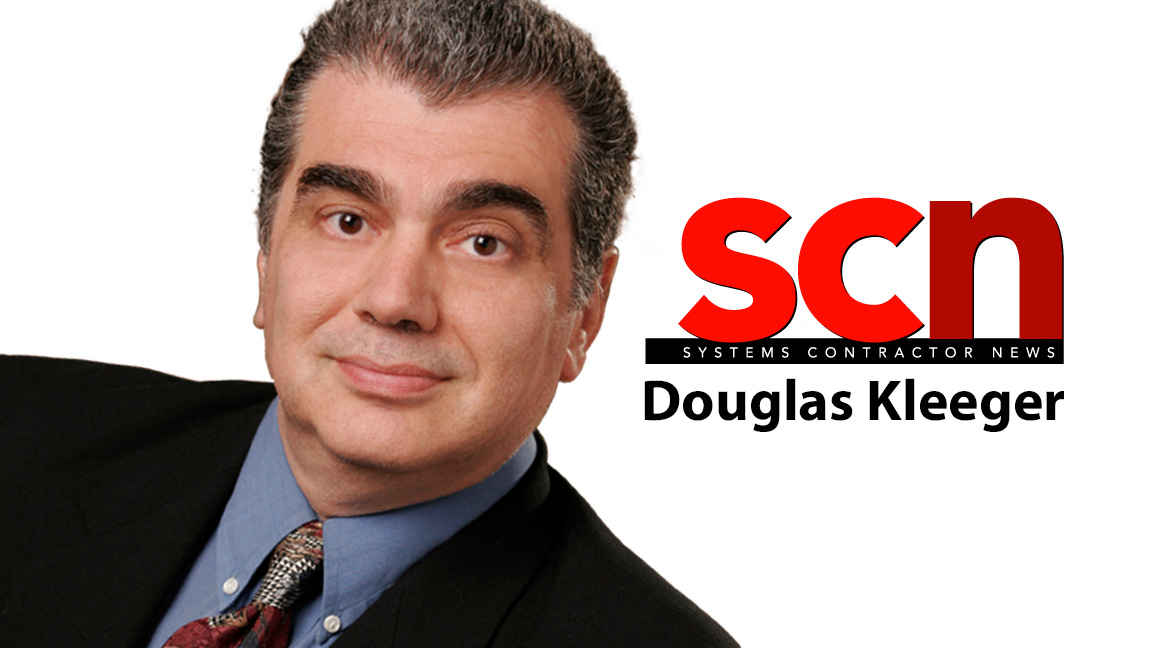For some time now, there has been a plethora of quotes, articles, and seminars on leadership posted on LinkedIn. Many of those quotes are direct opposites. One reads: “If you don’t take care of your customers, someone else will.” Lower in the thread is another: “Take care of your employees and they will take care of your customers.” To me it sounds like the age-old question of which came first, the chicken or the egg?
While I enjoy reading these quotes, and I ponder them for a moment, I don’t read the actual articles and/or complete posts. Right off the bat, they are a little bit right and a little bit wrong. There is just no one-sided aspect to leadership and how you treat your employees/co-workers. In fact, most if not all the decisions we make, whether leadership or personal, and how we behave could likely use a little more balanced thought and consideration for others.
Road Show Revelation
With the pandemic lightening up, many manufacturers are back on the road. There was a two-day event put on by Legrand | AV at a local brewery in Marietta, GA. I know some folks from Legrand and thought it would be a great opportunity to get some fresh air (working remote has its ups and downs) and rekindle some acquaintances, as well as meet some new folks.
It was a nice day, but not a big turnout from us locals. It was a well-organized event, lots to see (some SWAG for my kids), good food—everyone had a great attitude and a good time. Thanks to Legrand.
[Beyond the Tech: How Do You Define Remote Work?]
I met a young lady there, Rebekah Cannon. She is a national solutions specialist, digital signage, for Legrand. We got to talking, touched on careers, school, and even cats (we both came from families that took in stray cats).
As I recall, Rebekah graduated with a bachelor’s degree, started working for Legrand right out of college, and has been with the company for two years. So far, so good.
Having recently written about working remote, I asked about her work situation. That’s when the bombshell hit. Rebekah said she started her job working remotely during the pandemic. She has never been to or worked in an office, and likely will not.
This is her first job.
Just ponder that for a moment. The younger generation workforce may never work in an office with others? While I see many red flags here, let’s stay on the topic of leadership. I have yet to see anything written to address the issue of working 100% remote and the ramifications this may hold for future leaders.
Office Advantages
Leadership is an important aspect of our society, as we are social creatures, often working in groups. Someone has to decide left or right, stay or go, etc. I don’t want to get bogged down on good vs. bad leadership. Instead, I want to focus on where good, effective leaders come from.
[Viewpoint: With Systems and Sustainability, Mutual Gains are Possible]
Is leadership taught from a textbook, or is leadership and its associated skills learned behavior from interacting with others? Perhaps it’s balanced with some of both? I have found that working in an office surrounded with others, you can learn humility, kindness, and decision-making skills from the daily interaction with your co-workers and leaders.
Think about all the teams in our industry. A systems integrator can have project management, accounting, installation, commissioning, service, programmers, engineers, executive management, administration, and shipping and receiving teams, just to name a few.
Face-to-face interaction is how it’s been—and I believe there is a lot to learn from the nuances of people’s body language and expressions. Even the general vibe they give off during interactions can be helpful. With remote workers, those benefits go away.
While you may be able to pick up some facial expressions, cameras are not always on. As far as body language goes, when was the last time you were in a meeting and saw more than a headshot? And vibes that can indicate someone’s mood are lost, too. The benefits of in-person interaction are not something I see happening through videoconferencing.
[Editorial: The Big Quit Will Be…Televised on TikTok?]
I mention these aspects because I feel the most effective leaders are those who have worked their way up to a leadership position by learning the intricacies of the job and the actual work, as well as learning about their company, co-workers, clients, etc. Of course, there is more to being a leader than the job, but face-to-face, in-the-trenches experience is an important part of the process.
So, what does the future hold for workers who have always worked remotely? Sure, there will be training, classes, and perhaps a leadership certification (maybe even developed by an AI computer program). I, for one, don’t want to see that.
For those who lead, employees need to be more than just numbers with an ROI ratio next to their name. We need to start looking ahead to consider how we can mentor younger talent to be more than just effective leaders for shareholders, but to have love, humility, kindness, and common sense as well.
Answering ‘That’ Interview Question
Keeping in line with previous sidebars on employment, I saw a post on LinkedIn from Tom Proietti that got me thinking:
“Them: Can we contact your previous employer to make sure you’re a good fit?
You: Sure! As long as I can ask your previous employees why they quit.”
Interesting thought, right? I can tell you I have been asked that question, but had not thought of this reply, nor would I use it for fear of being thought of as…well, let’s say smug.
Employers are in control, as there are more candidates than employers. Maybe someday, a better method will evolve between those seeking employment and those offering employment that provides a more “balanced” approach for the hiring process.

